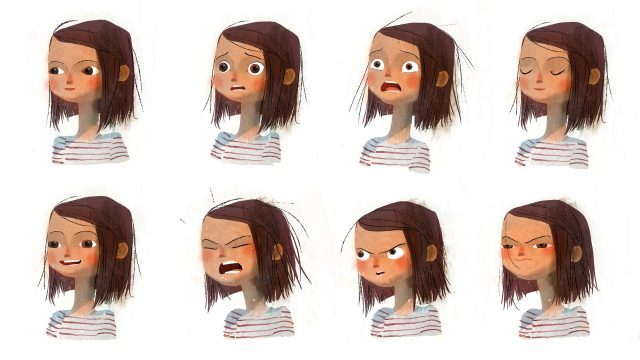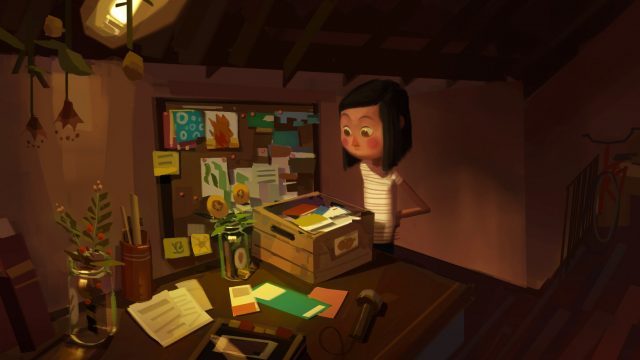Fable, founded by former Oculus Story Studio alumni, today announced a distinct pivot in their focus, moving from an immersive storytelling studio to a “virtual beings” company which plans to build persistent, AI-powered, characters which can interact naturally with viewers.
Fable introduced itself a year ago as a character-driven immersive storytelling studio, at the time revealing its first VR experience dubbed Wolves in the Walls, which was prominently built around protagonist Lucy, a character created by the studio. At the time the studio clearly expressed its interest in making Lucy a reactive character and one that would be persistent across several experiences and platforms.
Now the company is pushing even further in that direction, dubbing itself a “virtual beings company” rather than an immersive storytelling studio. The idea, says Fable co-founder and former Oculus Story Studio alum Edward Saatchi, is to imbue the character Lucy with AI and natural input such that each viewer can have unique interactions with her, with the potential for those interactions to become part of Lucy’s memories which could color future interactions.
Saatchi says that his time at Oculus Story Studio was largely spent trying to figure out how to fuse VR gaming and film to define the art form of immersive storytelling. At Fable, he now wants to fuse immersive storytelling with AI to create virtual beings that form the core of what he sees as the future of storytelling—characters that not only interact with viewers, but transcend individual stories or experiences by existing across many contexts, all while being meaningfully aware of individual viewers through ongoing interactions.
“Lucy is always Lucy if she’s in AR or VR. She’ll carry that across platforms, across worlds, across technology,” says Fable’s Jessica Shamash, who is directing an upcoming Lucy-centered experience called Whispers in the Night, where Lucy’s first memories will be formed.

Shamash says that in the experience viewers will interact with Lucy via natural language processing, in an effort to create a spoken dialogue between viewer and character. Lucy will also record some memories from the interactions to be used later.
“Within Whispers in the Night, the whole theme is about memory. Throughout it you’ll see that Lucy has a memory and can call back to something that you said from the beginning to the end,” says Shamash. “Also it will allow us to weave [some of those memories] from Whispers in the Night into Wolves in the Walls.”
Wolves in the Walls is another Lucy-centered experience which comes chronologically later in her “life” story, as Saatchi put it.

Whispers is just a starting point, but Saatchi’s ultimate vision is that Lucy, or other virtual being characters, could be developed as believable AI personalities that uniquely remember and interact with individual viewers across experiences. Even further out, “a virtual being could be the next operating system,” he suggested.

He believes that such virtual beings are the next frontier for storytelling, and points to a handful of examples of others breaking ground in this space, like ‘Lil Miquela‘ a CGI character who is presented as real, with a crafted narrative playing out through Instagram posts to her 1.5 million followers.
Another is Mica, a CGI character being designed by Magic Leap to push the boundaries of realistic rendering of digital humans, with the end-goal of using her as an AI-powered assistant and interface for augmented reality.
Fable is so excited about this frontier of AI driven characters and storytelling that they’re also announcing that they’ll be hosting a conference focused entirely on the topic, with the goal of bringing together storytellers and developers building AI technologies. The suitably named Virtual Berings Conference is planned for Summer 2019 in San Francisco.






